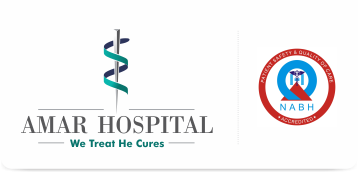Recognizing the symptoms of a heart attack early can save lives. This guide provides detailed insights from cardiologists on how to identify these symptoms.
Understanding Heart Attack
A heart attack occurs when the flow of blood to the heart is blocked, typically by a buildup of fat, cholesterol, or other substances that form a plaque in the arteries. When the heart muscle is deprived of oxygen-rich blood, it becomes damaged. Knowing the symptoms of a heart attack can help in seeking immediate medical attention.
Also Read: Top 10 Tips to avoid high risk pregnancy
Common Symptoms of Heart Attack
1. Chest Pain or Discomfort
This pain often feels like a squeezing, pressure, fullness, or pain in the center of the chest. It can last for more than a few minutes, or it may go away and return.
2. Shortness of Breath
Shortness of breath can occur with or without chest pain. It might feel like you can’t catch your breath, even when you are resting. This is often accompanied by chest discomfort but can occur on its own.
3. Pain in Other Areas of the Body
Pain or discomfort may also radiate to other parts of the body. Common areas include one or both arms, the back, neck, jaw, or stomach.
4. Cold Sweat
Breaking out in a cold sweat, or feeling clammy and sweaty without any obvious reason, can be a sign of a heart attack. This symptom is often mistaken for anxiety or stress but should not be ignored if it occurs alongside other symptoms.
5. Nausea or Vomiting
Some people might feel nauseous or actually vomit. This symptom is more common in women experiencing a heart attack but can occur in men as well.
6. Lightheadedness or Dizziness
This could be due to the reduced blood flow to the brain. If you feel faint, coupled with other symptoms, it’s important to seek medical help immediately.
Less Common Symptoms
1. Fatigue
Unusual or unexplained fatigue is a less common symptom of a heart attack. Some people, particularly women, might feel unusually tired days or even weeks before a heart attack.
2. Indigestion or Heartburn
Some individuals might experience indigestion or heartburn that doesn’t go away with antacids. This can be mistaken for gastrointestinal issues but could indicate a heart attack.
3. Swelling
Swelling in the legs, ankles, or feet can also be a sign of heart issues. This symptom is not as well-known but should not be overlooked.
How Can You Predict Heart Attack Symptoms?
Predicting a heart attack is challenging because symptoms can vary widely among individuals. However, paying attention to the body and noting any unusual changes can help.
1. Regular Health Check-ups
Routine health check-ups are crucial. They can help detect risk factors like high blood pressure, high cholesterol, and diabetes, which can lead to heart attacks.
2. Know Your Family History
A family history of heart disease increases the risk of a heart attack. Knowing this history can help in taking preventive measures early.
3. Lifestyle Changes
Adopting a healthy lifestyle can reduce the risk of a heart attack. This includes maintaining a balanced diet, regular exercise, avoiding smoking, and managing stress.
4. Monitor Symptoms
Keeping a close watch on any recurring or unusual symptoms and seeking medical advice promptly can make a significant difference.
Recognizing the Early Signs
Early detection is crucial in preventing severe heart damage. Even minor symptoms, such as a slight discomfort in the chest or mild shortness of breath, should not be ignored. It’s important to note that symptoms can sometimes appear gradually, making them easy to overlook. Keeping a symptom diary can help track these subtle changes over time, providing valuable information for your healthcare provider.
The Importance of Immediate Action
When it comes to heart attacks, every second counts. Delaying treatment can lead to more extensive heart damage and decrease the chances of a full recovery. If you or someone around you experiences symptoms of a heart attack, call emergency services immediately. Quick intervention with treatments like medication or surgical procedures can significantly improve outcomes and save lives.
Gender Differences in Heart Attack Symptoms
It’s important to recognize that heart attack symptoms can differ between men and women. While men often experience classic symptoms such as chest pain, women may have less obvious signs like fatigue, nausea, and jaw pain. This variation can sometimes lead to misdiagnosis or delayed treatment in women. Being aware of these differences and advocating for thorough medical evaluation is essential for everyone.
Conclusion
Recognizing the symptoms of a heart attack can save lives. Chest pain, shortness of breath, pain in other areas of the body, cold sweat, nausea, lightheadedness, and fatigue are key symptoms to watch out for. Less common symptoms like indigestion, swelling, and extreme fatigue should also be taken seriously. Predicting a heart attack involves regular health check-ups, understanding family history, adopting a healthy lifestyle, and monitoring symptoms.
At Amar Hospital, we provide the best services to ensure heart health. Our team of expert cardiologists is dedicated to offering comprehensive care and advanced treatment options. If you or someone you know experiences any symptoms of a heart attack, seek medical attention immediately. Stay aware, stay healthy, and trust Amar Hospital for your heart care needs.


